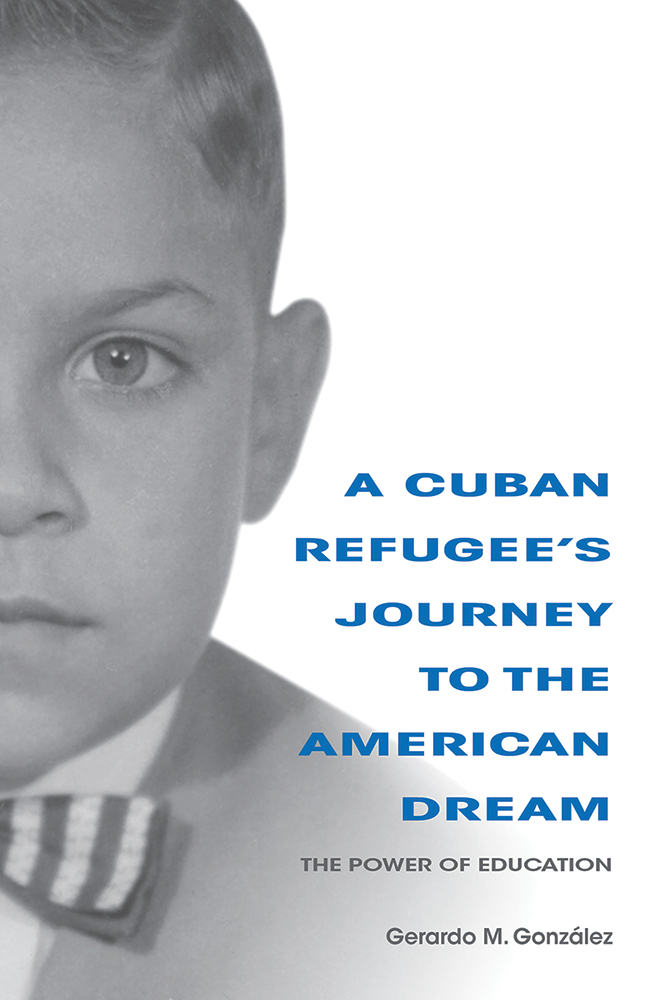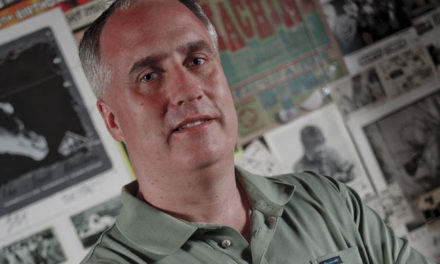BY JULIE GRAY
A new memoir by Gerardo González, Indiana University School of Education dean emeritus, is a tribute to openness—the kind that happens when a nation welcomes new citizens and a person welcomes new ideas.
In February 1962, nine months before the Cuban missile crisis, González, then 11 years old, emigrated to the United States with his sister and parents. In A Cuban Refugee’s Journey to the American Dream, he poignantly describes the difficulties immigrants face even when they have entered this country legally.

A Cuban Refugee’s Journey to the American Dream.
“I was once a bright and happy child,” he writes. “But when my family relocated to a strange and forbidding society, I couldn’t speak or understand those around me. I was forced to conform to the standards of a society I simply couldn’t comprehend.”
One frightening incident transformed him into a terrified student who kept his head down and his mouth shut. During his first year in Miami, a vice principal entered his bilingual classroom and began haranguing the class: “This is America and you better behave like Americans.” When González, whose English comprehension was still low, asked a classmate to translate, he was suspended from school for interrupting.
Although he managed to graduate from high school, he admits that he was “a spectacular underachiever” who had no intention of going to college until a friend encouraged him. Like most first-generation college students, he knew nothing about the application process: “My parents never talked about SATs, GPA, FAFSA.” His first step was to enroll in a junior college.
He movingly describes how his liberal arts education—reading Dostoyevsky, Darwin, Camus—made him “thirsty for knowledge.” After earning his associate degree, he continued at the University of Florida in Gainesville, eventually earning a Ph.D. in counselor education and student personnel administration.
As a graduate student, he helped found what eventually became a national collegiate organization for preventing alcohol abuse. González proudly reproduces a letter he received from President Ronald Reagan, commending his “fine contribution to your adopted homeland.”
Much of González’s memoir is an argument for giving other immigrants the same chances he had. The plight of the Dreamers, the children born in America to parents who entered illegally, especially moves him. He argues: “Making sure those kids have opportunities is a matter of national survival. If we create conditions that systematically deny opportunity to any given class of people, we position ourselves for the demise of liberty.”
His book is also an argument for education. As he writes in an epilogue, “Education is the great equalizer. It is the solution to the great and most intractable problems facing the world.”







